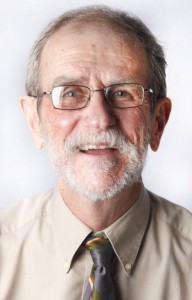By Jim Stasiowski
Jean Coleman hired me in 1976 even though I had neither a journalism degree nor experience in writing for a newspaper.
Although I wanted to be a reporter, she hired me for the only job she had open at the small Florida newspaper she edited: night and weekend photographer. (Of course, I had no photography or darkroom experience, either, but years after she hired me, Jean told me that in the unscheduled interview – I simply walked into her newsroom and asked to talk to her – she spotted in me some spark presaging future success. I had been worried that what she would spot was my ill-fitting suit.)

Jean had a very direct approach, including powerful eyes that locked on mine as she quizzed me. Why, she asked, was a person so unqualified seeking a reporting job?
Playing my only ace, I said, “I love to write.”
I took photos for only a year, but I proved my writing obsession by squeezing a story into my workday whenever possible. When a reporter left and Jean said, “Jim, I have an opening …,” I accepted the job before she finished offering it.
She did that despite the fact that my early writing attempts were erratic, even amateurish. (I recall misspelling “sheriff” – I used two r’s, only one f – and having her say aloud in the newsroom that a person with my education (degree in English) should spell better.)A strong and demanding editor, she also excelled at the more sensitive skills of teaching and encouraging. She liked what she called my “voice” – I wasn’t aware I had one – so instead of forcing me into some straitjacket of orthodox newspaperspeak, she gave me the latitude to experiment.
Jean was a blend of hard-news traditionalist and take-risks adventurer. She winced at some of my more radical lead sentences – what young reporter doesn’t think he or she is redefining journalism? – but let me roam the city for offbeat material.
After covering a puppet show for children, I said I was embarrassed because I loved it. Jean replied, “I want you to love this job, I want you to discover yourself.”
Her enthusiasm and resoluteness filled the room. All of us were young – I actually was the oldest – and we wanted to please Jean. “Be polite with sources,” she said, “but ask tough questions.”
If I messed up, she succinctly corrected me and trusted I wouldn’t repeat the mistake. When I wrote a good story – even just a good sentence – she praised me in the same economical way she criticized, that is, in just a few words, implying I should get back to work and not kick back and bask in a past success.
A big step in developing my confidence came when she trusted me with a difficult story: An anniversary was coming up of the building of a much-debated bridge. What started as a single story grew – and my subsequent editors will recognize this pattern – into a three-part series, all typed on a typewriter, with carbon copies I stuffed into a manila folder. I loved the effort, all the heated, divergent interviews, the diving into filing cabinets for archival documents and news clips. Jean’s editing was a textbook on news writing.
But the long stories (or series) weren’t my only joys. Jean taught me to love equally the well-crafted brief or non-bylined story that didn’t deserve Page 1 but brightened an otherwise nondescript inside page. Her love of good sentences (see above) motivated me to earn her praise for a creative Paragraph 5 that marked a little story as being my personal property.
I regret that I lost track of Jean after she left the newspaper. I never satisfactorily thanked her for her faith in me, her cultivating of my creativity and her deft, determined teaching of the poorly dressed guy with no newspaper experience who brashly interrupted her workday in 1976.
She didn’t teach me everything I know about writing – after working for so many excellent editors, I would be foolish to credit only her – but her distinctive voice, which I still hear as if she were alongside me for all of my 40 years in newsrooms, kept me pointed in the right direction, even when I faced difficult people and difficult problems.
Before writing this column, I searched for her – thanks, Google – and found this sad news: She died in 2015, at age 87, after a life rich with achievements.
Her obituary was full of information, but although it was crisply written – she mostly would have approved – it lacked what I think she would have appreciated: a few good sentences that displayed both her individuality and that of the writer.
THE FINAL WORD
Don’t use the narrowly scientific word “epicenter” when what you mean is the center or focal point. An “epicenter” is the point on the Earth’s surface directly above the underground spot at which an earthquake occurred.
“Epicenter” as a synonym for “center” is pretentious and wrong.
 Nevada Press Association The best in Nevada journalism since 1924
Nevada Press Association The best in Nevada journalism since 1924
